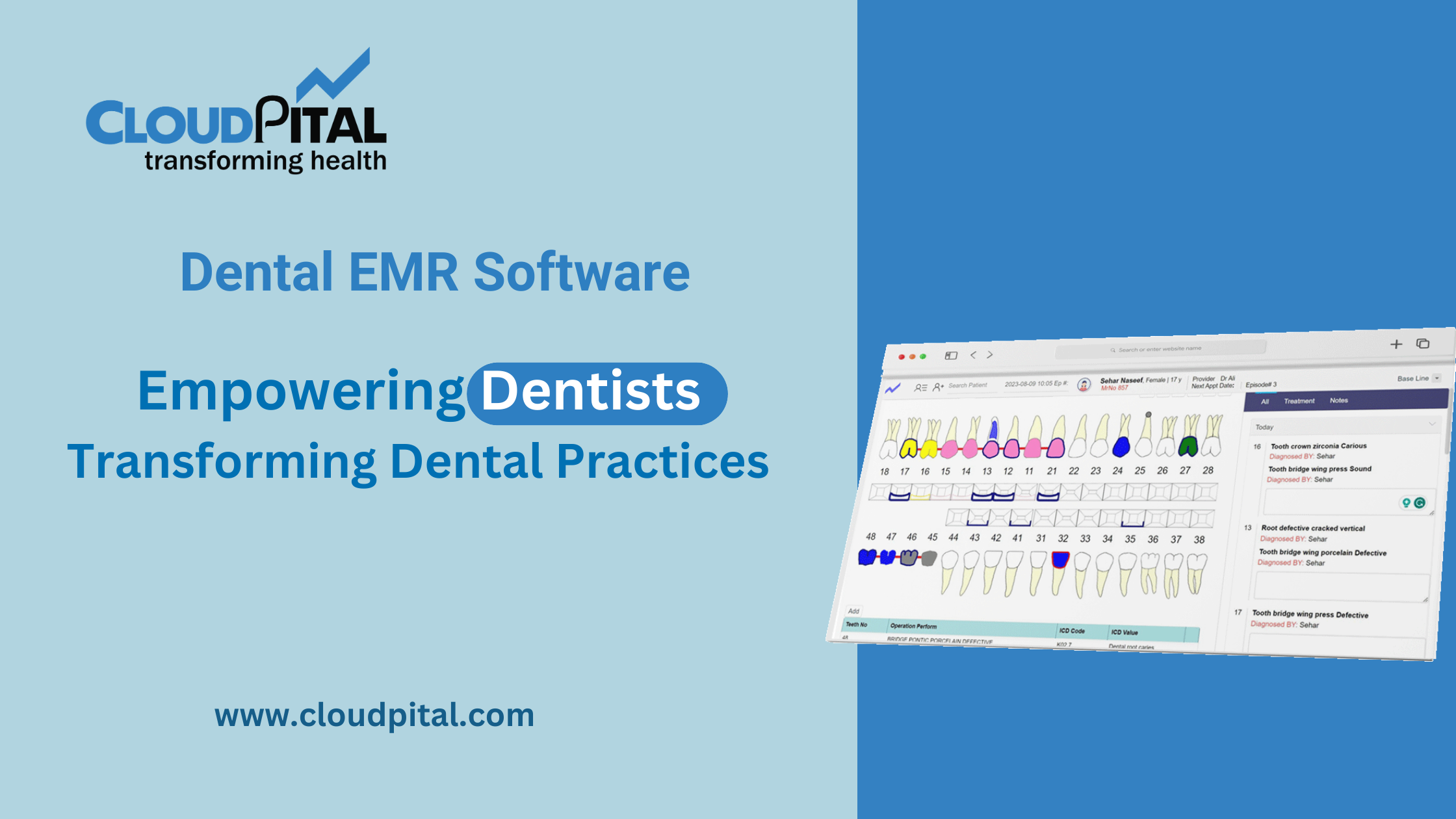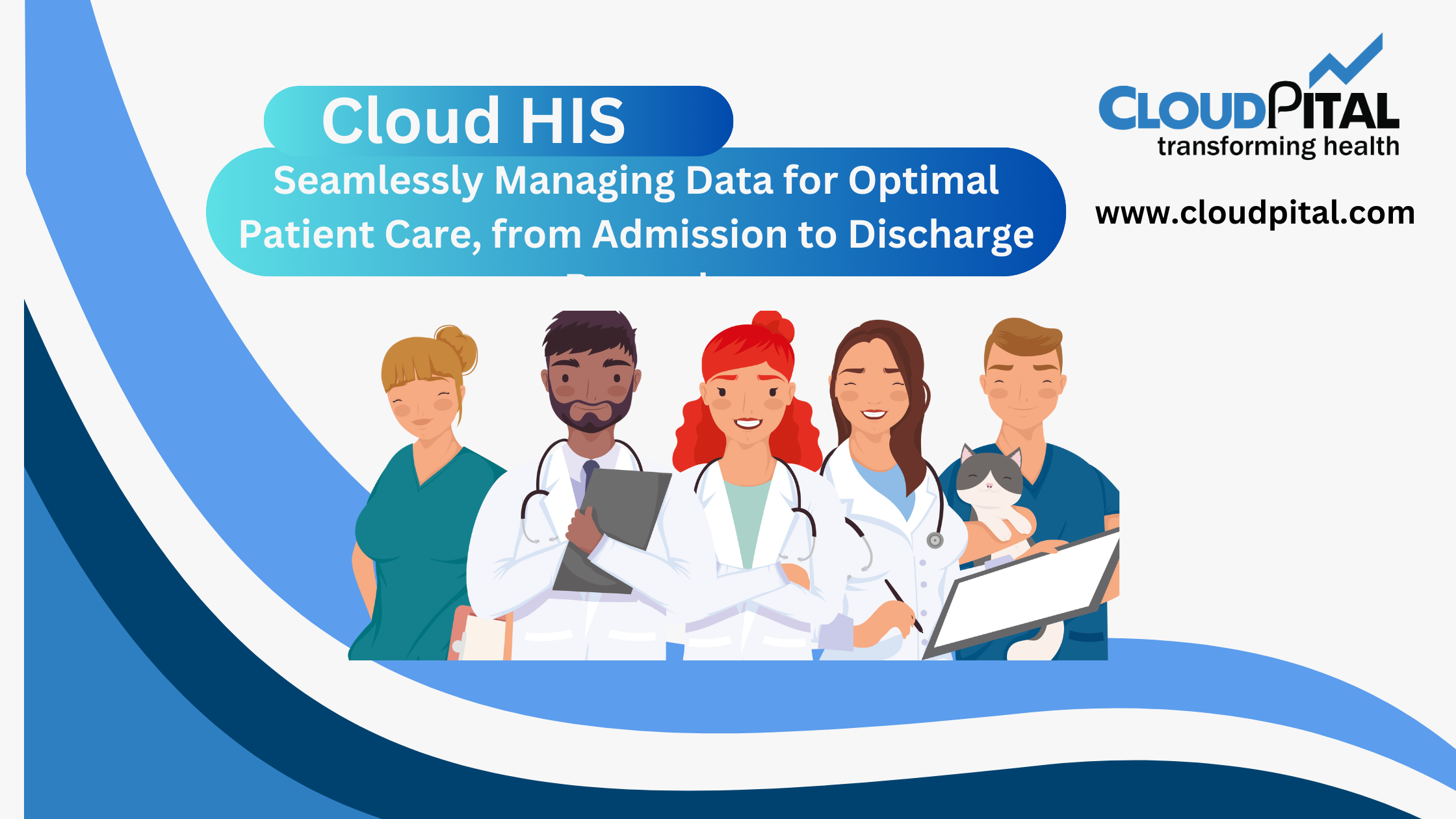Cloudpital # 1 is one of the top PMS that play a pivotal role in the modern healthcare ecosystem, particularly in managing patient records. These systems are designed to streamline and enhance the management of patient information, which is critical for effective healthcare delivery. In this essay, we will explore the multifaceted role of a PMS in patient record management, including its impact on data accuracy, accessibility, security, integration, and overall patient care.
Click to Start Whatsapp Chatbot with Sales
Mobile: +966547315697
Email: sales@cloudpital.com
Cloudpital # 1 PMS

Centralization of Patient Records
One of the primary functions of a PMS is the centralization of patient records. Traditionally, patient information was scattered across various paper records, departmental systems, and healthcare providers. This fragmentation led to inefficiencies, such as difficulty in accessing comprehensive patient histories and increased risk of errors.
A PMS consolidates all patient data into a single digital repository, providing a centralized view of a patient’s medical history, including demographics, diagnoses, treatments, test results, and visit notes. This centralization not only enhances data accessibility but also ensures that healthcare providers have up-to-date and comprehensive information, leading to better-informed clinical decisions.
Improving Data Accuracy
Accurate patient records are essential for providing high-quality healthcare. Manual entry of data and paper-based records are prone to errors, such as misfiling, illegible handwriting, and data entry mistakes. These errors can have serious consequences for patient safety and treatment outcomes.
A PMS improves data accuracy through several mechanisms:
- Standardized Data Entry: PMS platforms use standardized forms and templates, reducing variability and minimizing errors.
- Validation Rules: Automated validation checks ensure that data entered into the system adheres to predefined rules and formats.
- Error Detection: The system can identify and alert users to inconsistencies or missing information.
By minimizing human error and standardizing data entry, a PMS enhances the accuracy and reliability of patient records.
Enhancing Data Accessibility
In healthcare settings, timely access to patient records is crucial for delivering prompt and effective care. Traditional paper records often lead to delays and inefficiencies in accessing patient information. A PMS addresses this challenge by providing electronic access to patient records from various locations and devices.
Key features that enhance data accessibility include:
- Cloud-Based Access: Many PMS platforms offer cloud-based solutions, allowing authorized users to access patient records from anywhere with an internet connection.
- Interoperability: PMS systems often integrate with other healthcare systems, such as Electronic Health Records (EHR) and Laboratory Information Systems (LIS), facilitating seamless data exchange and reducing the need for manual data retrieval.
- Mobile Access: Mobile-compatible PMS applications enable healthcare providers to access patient records using smartphones and tablets, which is especially valuable in settings such as emergency care or home visits.

Improving Data Security and Privacy
Protecting patient data is a top priority for healthcare organizations, given the sensitive nature of the information and regulatory requirements. A Dental Software in Saudi Arabia plays a critical role in ensuring data security and privacy through a range of security features and protocols.
Key security measures include:
- Access Controls: PMS systems implement role-based access controls, ensuring that only authorized personnel can view or modify specific patient records.
- Data Encryption: Encryption technologies protect patient data both during transmission and while stored in the system, preventing unauthorized access.
- Audit Trails: Comprehensive audit trails track all user interactions with patient records, providing a detailed history of access and modifications. This feature helps identify potential security breaches and ensures accountability.
Compliance with regulations such as the Health Insurance Portability and Accountability Act (HIPAA) in the United States or the Personal Data Protection Law (PDPL) in Saudi Arabia is facilitated by these security measures, ensuring that patient data is handled appropriately.
Facilitating Integration with Other Systems
A PMS is often integrated with other healthcare systems to create a cohesive and efficient healthcare ecosystem. Integration with various systems enhances the functionality of a PMS and improves patient record management.
Common integrations include:
- Electronic Health Records (EHR): Integration with EHR systems allows for seamless data exchange between patient management and electronic health records, ensuring consistency and completeness of patient information.
- Laboratory Information Systems (LIS): Integration with LIS facilitates the automatic transfer of laboratory test results into the PMS, reducing the need for manual data entry and minimizing the risk of errors.
- Billing and Revenue Cycle Management (RCM): Integration with billing systems and RCM platforms streamlines the management of patient billing, claims processing, and revenue tracking.
These integrations enhance the overall efficiency of patient record management and contribute to a more coordinated approach to patient care.
Streamlining Patient Interactions
A PMS enhances patient interactions by providing tools and features that improve communication and engagement between healthcare providers and patients. This includes:
- Appointment Scheduling: PMS systems often include integrated scheduling features that allow patients to book and manage appointments online. Automated reminders and notifications help reduce no-show rates and improve patient attendance.
- Patient Portals: Many PMS platforms offer patient portals that enable patients to access their own health records, view test results, request prescription refills, and communicate with their healthcare providers. This self-service capability empowers patients to take an active role in their healthcare.
By streamlining patient interactions, a PMS enhances patient satisfaction and engagement, contributing to better health outcomes.
Supporting Clinical Decision-Making
A PMS supports clinical decision-making by providing healthcare providers with comprehensive and up-to-date patient information. Key features that aid in clinical decision-making include:
- Decision Support Tools: Many PMS systems include clinical decision support tools that offer evidence-based recommendations, alerts, and reminders based on patient data.
- Data Analytics: Advanced data analytics features enable healthcare providers to analyze patient data, identify trends, and make informed decisions about treatment and care.
By providing actionable insights and decision support, a PMS enhances the quality of care and helps healthcare providers make more informed clinical decisions.
Enabling Reporting and Analytics
Reporting and analytics are crucial for monitoring and evaluating patient care and organizational performance. A PMS provides robust reporting and analytics capabilities that support:
- Performance Metrics: Reporting tools within a EMR Software in Saudi Arabia allow healthcare organizations to track key performance metrics, such as patient outcomes, appointment wait times, and patient satisfaction scores.
- Compliance Reporting: PMS systems facilitate compliance with regulatory requirements by generating reports required for audits and quality assurance.
By enabling comprehensive reporting and analytics, a PMS helps healthcare organizations measure performance, identify areas for improvement, and ensure compliance with regulatory standards.
Conclusion
In summary, a Patient Management System (PMS) plays a vital role in managing patient records by centralizing data, improving accuracy, enhancing accessibility, and ensuring security. By integrating with other healthcare systems, streamlining patient interactions, supporting clinical decision-making, and enabling reporting and analytics, a PMS contributes significantly to efficient and effective healthcare delivery. As healthcare continues to evolve, the role of PMS in managing patient records will remain crucial in supporting high-quality care and ensuring the seamless operation of healthcare organizations.
Click to Start Whatsapp Chatbot with Sales
Mobile: +966547315697
Email: sales@cloudpital.com
What role does a PMS play in patient record management? similar software solutions prices were updated on 2025-06-15T19:16:35+00:00 in Saudi Arabia in Mecca, Medina, Riyadh, Khamis Mushait, Yanbu, Jeddah, Dammam, Unaizah, Uqair, Ha’il, Ta if, Al Bahah, Dhahran, King Abdullah Economic City, Najran, Diriyah, Qatif, Khafji, Jubail, Abqaiq, List of Cities and Towns in Saudi Arabia, Ras Tanura, Turubah, Jazan Economic City, Knowledge Economic City, Medina, Khobar, Abha, Tabuk, Saudi Arabia, similar software solutions prices were updated on 2025-06-15T19:16:35+00:00 We also provide in Saudi Arabia services solutions company in Hafar Al-Batin, Udhailiyah, Al-Awamiyah, Hofuf, Hautat Sudair, Buraidah, Tayma, Duba, ‘uyayna, Saihat, Al-Kharj, Al-ula, Jizan, Rumailah, Ar Rass, Arar, Shaybah, Al Majma’ah, Rabigh, Dhurma, Haradh, List of Saudi Cities by Gdp Per Capita, Badr, Sudair Industrial City, Baljurashi, Shaqraa, Al-Khutt, Habala, Ad Dawadimi, Dawadmi, Layla, similar software solutions prices were updated on 2025-06-15T19:16:35+00:00 Price is SAR 100 and this was updated on updated on 2025-06-15T19:16:35+00:00 similar What role does a PMS play in patient record management? software solutions prices were updated on 2025-06-15T19:16:35+00:00 in Saudi Arabia in Haql, Afif, Al-Abwa, Farasan, Al-Jaroudiya, Thadig, Al-Thuqbah, Al Wajh, Almardmah, Al-Zilfi, Muzahmiyya, Prince Abdul Aziz Bin Mousaed Economic City, Tharmada’a, Skaka, Um Al-Sahek, Sharurah, Tanomah, Bisha, Dahaban, Al Qunfudhah, Qurayyat, Saudi Arabia, Ha’ir, as Sulayyil, Al Lith, Turaif, Al-Gway’iyyah, Samtah, Wadi Ad-Dawasir, Az Zaimah, Safwa City, Jalajil, Harmah, Mastoorah, Hotat Bani Tamim, Jabal Umm Al Ru’us, Rafha, Qaisumah, Al-Ghat, Hajrah, Al-Hareeq. Excerpt: Jeddah (also spelled Jiddah, Jidda, or Jedda; Arabic: Jidda) is a Saudi Arabian city located on the coast of the Red Sea and is the major urban center of western Saudi Arabia similar software solutions prices were updated on 2025-06-15T19:16:35+00:00 Price is SAR 100 and this was updated on updated on 2025-06-15T19:16:35+00:00
27-8-2024



